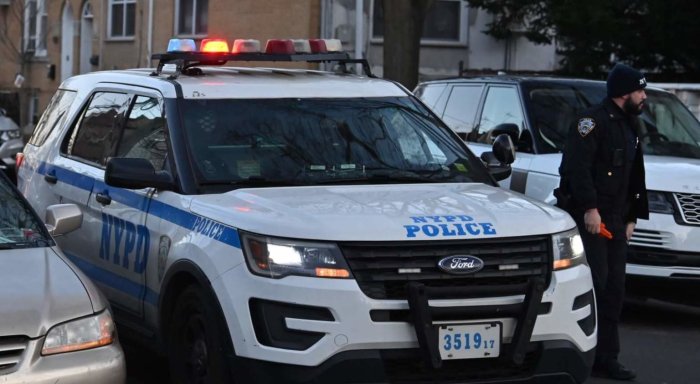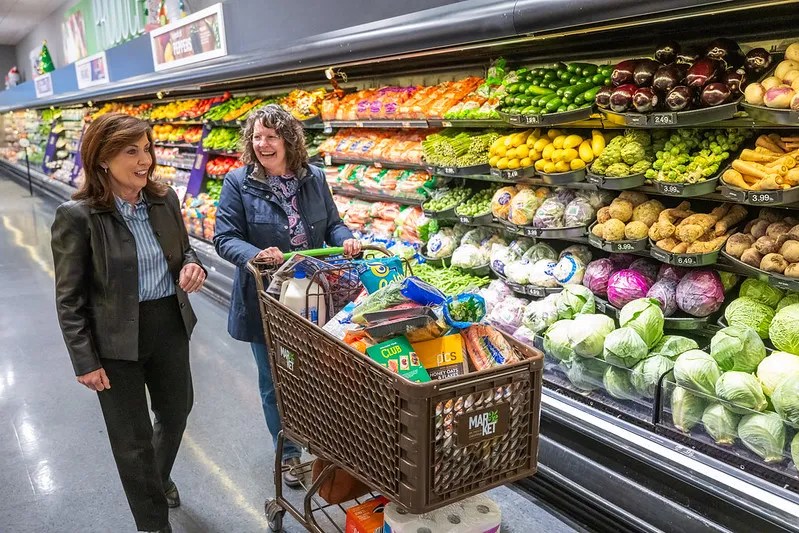By Daniel Massey
Yaffa Haimoff immigrated to the United States from Uzbekistan in 1993. The social worker from Kew Gardens said she left her homeland for three main reasons. “I couldn’t work there and my son couldn’t study,” she said. “And there was no religious freedom.”
Despite feeling a little uneasy since the Sept. 11 terrorist attacks, Haimoff said she is happy to remain in the United States, where her son is soon to qualify as a doctor and she is free to practice her Judaism.
Haimoff said she feels more committed to America, more patriotic, since the attacks, as many immigrants in Queens say they do.
But at the same time as they have been swept by the upsurge in patriotism, many immigrants have started worrying about the backlash from the terrorist attacks. Some Queens residents have been the target of hate crimes for being, or just appearing to be, of Middle Eastern descent. They also worry that growing fear of terrorism will mean a tightening of immigration laws.
Since the terrorist attacks, Queens’ immigrant groups have been at the forefront of efforts to honor the memory of those who died at the World Trade Center and provide for the families they left behind.
Vigils, blood drives and collections were organized by an array of ethnic communities, including Afghans and Pakistanis in Flushing, Sikhs and Guyanese in Richmond Hill, Bangladeshis in Jamaica, Colombians in Jackson Heights and Muslims at mosques across the borough.
American flags have flown in immigrant neighborhoods in unprecedented numbers.
“They’re New Yorkers and it’s a real sense of loss and tragedy,” said Brian Pu-Folkes, president of New Immigrant Community Empowerment in Jackson Heights. “They’ve been made nervous, scared and sad like all.”
Pu-Folkes said immigrants are anxious but resolute about why they came to this country in the first place. “It was to make a better life for themselves and for the democracy that exists here,” he said. “Most want to stay and live the American dream and be American.”
Harold Dasque, executive director of Haitian Americans United for Progress in Cambria Heights, said Haitians’ patriotism has been on the rise since the attacks.
“They still feel that America is the land of opportunity and they enjoy their freedom here.” he said “Now they will [fly] the Haitian flag and the American flag. It’s not their native country, but this is where they belong as well.”
Manny Behar, who works with many Jewish immigrants from the former Soviet republics as executive director of the Queens Jewish Community Council in Forest Hills, has witnessed a growing “sense that we’re all in this together.” He said the terrorists killed people without regard to where they came from.
“They were after Americans,” he said. “The fact that they did not distinguish just underscores the fact that we are a diverse people, but we are one people.”
Nacam Kaziev, chairman of the Educational Center for Russian Jewry in Rego Park, said Jews from the former Soviet republics have participated in community life like never before in the weeks since the attacks.
“I think it gave people a little more of a sense of belonging to the community,” he said. “We felt ‘wow, we’re all together here.’ Immigrants, Americans, we are one. We’ve been targeted as one.”
Michael Flynn, associate professor of psychology at York College and associate director of the Center on Violence and Human Survival at John Jay College of Criminal Justice, said “this traumatic event kind of seals an American or New York identity on people. It’s been packaged as an attack on America.”
While many immigrants have been heartened by feelings of togetherness, their new homeland has been less welcoming for some since the attacks.
There has been a wave of violence against Sikhs, whose beards and turbans resemble those of the Taliban, the group which controls most of Afghanistan and is harboring Osama bin Laden, head of the terrorist network that U.S. officials contend carried out the Sept. 11 assault.
“They don’t look at us as inclusive of American society,” said Harpreet Toor Singh, a trustee of a Sikh temple in Richmond Hill said. “We are as American as they are, but somehow they think we are not part of this country.”
Pu-Folkes said immigrants were worried that U.S. immigration policy is being blamed in part for the attacks.
“There’s some concern about the way people are reacting, the way people are thinking — you have to be tough on immigrants as though terrorism is an immigration problem,” he said. “There is concern about going home for important events, holidays, birthdays and coming back into this country. “
Prior to the terrorist attacks, President Bush said he was considering granting legal status to millions of illegal immigrants from Mexico and possibly other countries. Now Pu-Folkes is worried that American sentiment will move in the opposite direction.
“People are concerned about the kinds of laws being considered right now in reaction to Sept. 11,” he said.
Reach reporter Daniel Massey by e-mail at Timesledger@aol.com or call 229-0300, Ext. 156.


































